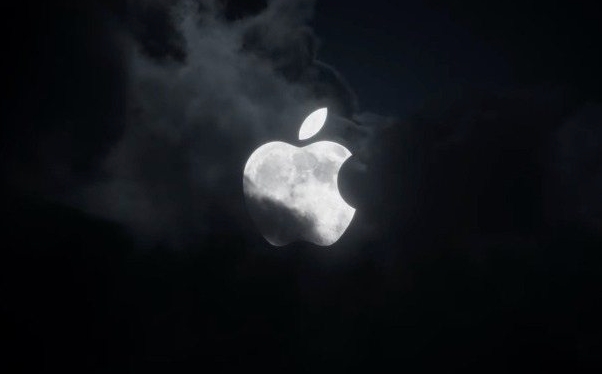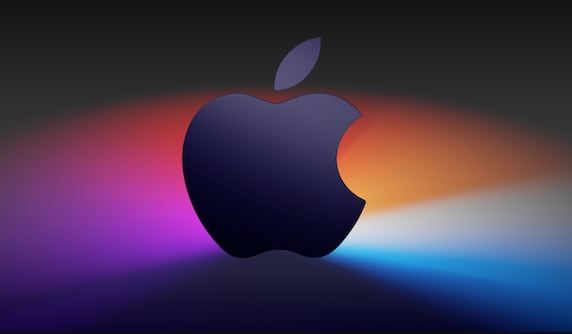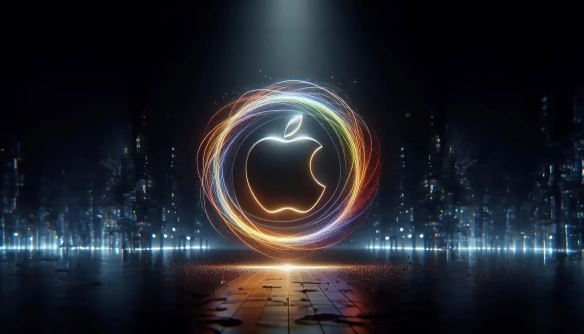 Computer Tutorials
Computer Tutorials
 System Installation
System Installation
 What is the difference between macOS Recovery and Internet Recovery?
What is the difference between macOS Recovery and Internet Recovery?
What is the difference between macOS Recovery and Internet Recovery?
Jul 02, 2025 am 12:24 AMmacOS Recovery is a built-in recovery system on a hidden partition of your Mac’s startup disk, providing tools like Disk Utility, Terminal, and macOS reinstallation. 1. It loads quickly from local storage. 2. Requires a functioning internal drive. 3. Tools include reinstalling macOS, repairing disks, and restoring from Time Machine. Internet Recovery is an alternative that downloads a minimal recovery system from Apple’s servers. 1. Accessed via Option + Command + R. 2. Requires internet but works without a local Recovery partition. 3. Ideal for erased or unbootable drives. Use macOS Recovery for fast solutions when the drive is intact, and Internet Recovery when the local Recovery partition is missing or damaged.

If you've ever needed to reinstall macOS or troubleshoot a serious issue on your Mac, you might have heard the terms "macOS Recovery" and "Internet Recovery." They sound similar, but there are important differences between the two. Here's what you need to know.

What is macOS Recovery?
macOS Recovery is a built-in recovery system that lives on a hidden partition of your Mac’s startup disk. It includes essential tools like Disk Utility, Terminal, and the ability to reinstall macOS. To access it, you restart your Mac and hold down Command + R (or just power it on and immediately hold those keys).

This mode is fast because everything it needs is already on your drive. But if that partition gets erased or corrupted — or if your internal drive fails — you won’t be able to use it.
Some key features:

- Comes preinstalled on your Mac
- Loads quickly from local storage
- Tools include:
- Reinstall macOS
- Disk Utility
- Time Machine restore
- Terminal
What is Internet Recovery?
Internet Recovery is like a backup plan for when macOS Recovery isn't available. Instead of loading tools from your hard drive, your Mac connects to Apple’s servers and downloads a minimal version of the recovery system over the internet.
To enter Internet Recovery, you reboot and hold Option + Command + R. It takes longer to start up since it has to download data, but it doesn’t rely on your internal drive at all.
It’s especially useful if:
- Your startup disk has been erased
- The Recovery partition is missing or damaged
- You're troubleshooting a completely blank Mac
Keep in mind: you’ll need a stable internet connection, and depending on your location and Apple’s server load, it might take several minutes to load.
When to Use Each Mode
Choosing between macOS Recovery and Internet Recovery usually comes down to your situation:
Use macOS Recovery if:
- You just want to reinstall macOS quickly
- Your internal drive is working fine
- You’re trying to restore from a Time Machine backup
- You need to fix disk issues with Disk Utility
Use Internet Recovery if:
- Your Recovery partition is missing or broken
- You're dealing with a wiped or failed drive
- You're setting up a used Mac that came without a Recovery partition
In most cases, macOS Recovery is faster and more convenient. But Internet Recovery gives you a fallback even when your local disk is unbootable.
A Few Things to Keep in Mind
- Not all Macs support Internet Recovery — it works on models from late 2009 or newer (Intel-based), and all Apple Silicon Macs.
- If you're using a Mac with Apple’s M1 chip or later, Internet Recovery looks a bit different — it boots into a Finder-like interface called "RecoveryOS."
- You can't customize Internet Recovery; it always pulls the OS version tied to your Mac model.
- On older Intel Macs, Internet Recovery may install an older version of macOS than what was last installed on the machine.
So, basically, macOS Recovery is your go-to tool for quick fixes and reinstallations, while Internet Recovery is the safety net when things go wrong with your drive. Either way, both help get your Mac back on track when something goes sideways.
That's about it — not too complicated, but definitely handy to understand before you're stuck needing one of them.
The above is the detailed content of What is the difference between macOS Recovery and Internet Recovery?. For more information, please follow other related articles on the PHP Chinese website!

Hot AI Tools

Undress AI Tool
Undress images for free

Undresser.AI Undress
AI-powered app for creating realistic nude photos

AI Clothes Remover
Online AI tool for removing clothes from photos.

Clothoff.io
AI clothes remover

Video Face Swap
Swap faces in any video effortlessly with our completely free AI face swap tool!

Hot Article

Hot Tools

Notepad++7.3.1
Easy-to-use and free code editor

SublimeText3 Chinese version
Chinese version, very easy to use

Zend Studio 13.0.1
Powerful PHP integrated development environment

Dreamweaver CS6
Visual web development tools

SublimeText3 Mac version
God-level code editing software (SublimeText3)

Hot Topics
 macOS installer is damaged and can't be used
Jun 28, 2025 am 12:01 AM
macOS installer is damaged and can't be used
Jun 28, 2025 am 12:01 AM
When you encounter the prompt "macOS installer is corrupted and cannot be used", the problem is usually not that the installation package itself is corrupted, but that there is an error in the verification mechanism or storage method. 1. Re-download the macOS installer, and priority is obtained from Apple's official channels to ensure integrity; 2. Turn off the installation verification in SIP, enter the csrutildisable command through the terminal and temporarily close the verification and restart the installation; 3. Check whether the USB boot disk is made correctly. It is recommended to use the createinstallmedia command and ensure that the USB disk format is MacOS extension; 4. Correct the time and date settings, adjust the time through the date command in the recovery mode to avoid misjudgment of the certificate expiration. Most of them are after completing the above steps.
 How to partition hard drive for Windows installation
Jun 27, 2025 pm 02:27 PM
How to partition hard drive for Windows installation
Jun 27, 2025 pm 02:27 PM
Partitioning is crucial to installing the system. Good partitioning can improve the system operation efficiency and data management convenience. First of all, you need to know that there are up to 4 main partitions, and logical partitions are required if there are more than UEFI. The new computer recommends that the GPT format be started with UEFI, and the old machine uses MBR; the system disk is reserved at least 60GB. It is recommended that home or office users be divided into 2 to 3 zones: system disk (60 to 100GB for disk C), data disk (remaining space for disk D), optional backup/tool ??disk (approximately 50GB for disk E), dual systems require additional partitions. During installation, operate the partition on the "Custom Installation" page, and be careful to delete the old system partition to avoid confusion. In terms of details, the default NTFS format is maintained, the SSD is turned on AHCI mode, partition first and then install the system, and disk management can be used to adjust the partition size but avoid it.
 macOS installer won't accept my password
Jun 29, 2025 am 12:14 AM
macOS installer won't accept my password
Jun 29, 2025 am 12:14 AM
The answer to the question is that the password error prompt may be caused by keyboard layout, case recognition, or installer source. The macOS installation interface uses an American English keyboard by default. The input of non-English keyboards may not match. It is recommended to switch layouts or avoid special characters; the password is case-sensitive, and it is recommended to check the CapsLock status or try all lowercase; if the installer comes from another Mac, you need to enter the Mac password to make the installer; you can also try to re-download the installer through recovery mode, confirm the administrator account identity, or format the disk with disk tools first.
 How to dual boot Windows 11 and Ubuntu
Jul 01, 2025 am 12:08 AM
How to dual boot Windows 11 and Ubuntu
Jul 01, 2025 am 12:08 AM
When installing dual systems, you need to pay attention to partitioning, installation order and BIOS settings. 1. Partition preparation: Use disk management tools to compress at least 25GB (50GB or more) of unallocated space to Ubuntu without formatting; 2. Make a boot U disk: Use Rufus to write Ubuntu ISO to at least 8GB U disk; 3. BIOS settings: Restart and enter the BIOS (usually press F2, Del or Esc), turn off SecureBoot, and set the U disk as the first boot item; 4. Install Ubuntu: Select "Somethingelse" custom partition, create a new ext4 mount point/ and occupy the remaining space, and build a swap partition equal to the memory size, boot and add
 What is the difference between macOS Recovery and Internet Recovery?
Jul 02, 2025 am 12:24 AM
What is the difference between macOS Recovery and Internet Recovery?
Jul 02, 2025 am 12:24 AM
macOSRecoveryisabuilt-inrecoverysystemonahiddenpartitionofyourMac’sstartupdisk,providingtoolslikeDiskUtility,Terminal,andmacOSreinstallation.1.Itloadsquicklyfromlocalstorage.2.Requiresafunctioninginternaldrive.3.ToolsincludereinstallingmacOS,repairin
 Can I use my Windows 7 product key to activate a new Windows 10 installation
Jul 02, 2025 am 12:15 AM
Can I use my Windows 7 product key to activate a new Windows 10 installation
Jul 02, 2025 am 12:15 AM
No,youcannotdirectlyuseaWindows7productkeytoactivateWindows10.1.Windowsproductkeysareversion-specific,soaWindows7keyonlyworksforWindows7.2.IfyourPCwasupgradedfromWindows7toWindows10beforesupportended,itmayhaveadigitallicenselinkedtothehardware,allowi
 How to install Windows 10 in VirtualBox
Jun 30, 2025 am 12:02 AM
How to install Windows 10 in VirtualBox
Jun 30, 2025 am 12:02 AM
The key steps to install Windows 10 to VirtualBox are as follows: 1. Prepare VirtualBox, Windows 10 ISO images and system resources; 2. Create a virtual machine and set the name, type, memory and virtual hard disk; 3. Mount the ISO file and start the installation process; 4. After the installation is completed, the enhancement function expansion package is inserted to improve performance and operating experience. The entire process requires attention to hardware compatibility, BIOS settings and installation of necessary dependencies to ensure smooth installation.
 Windows 10 installation stuck on logo
Jul 06, 2025 am 12:01 AM
Windows 10 installation stuck on logo
Jul 06, 2025 am 12:01 AM
When booting the computer and logging in the Windows 10Logo interface is usually not damaged by hardware, but rather an error in system file loading. 1. Wait for 15 to 30 minutes first to confirm whether it is "fake death". If there is no progress, force restart; 2. Force shut down three times to enter the recovery environment, try to start repair or enter safe mode to troubleshoot driver and software conflicts; 3. Check the hard disk bad channel, clean the memory gold fingers and replace the slot to test the hardware problems; 4. Finally, you can try to reset the computer or install the system in a brand new way to solve it, and give priority to using the official website pure ISO mirror.





